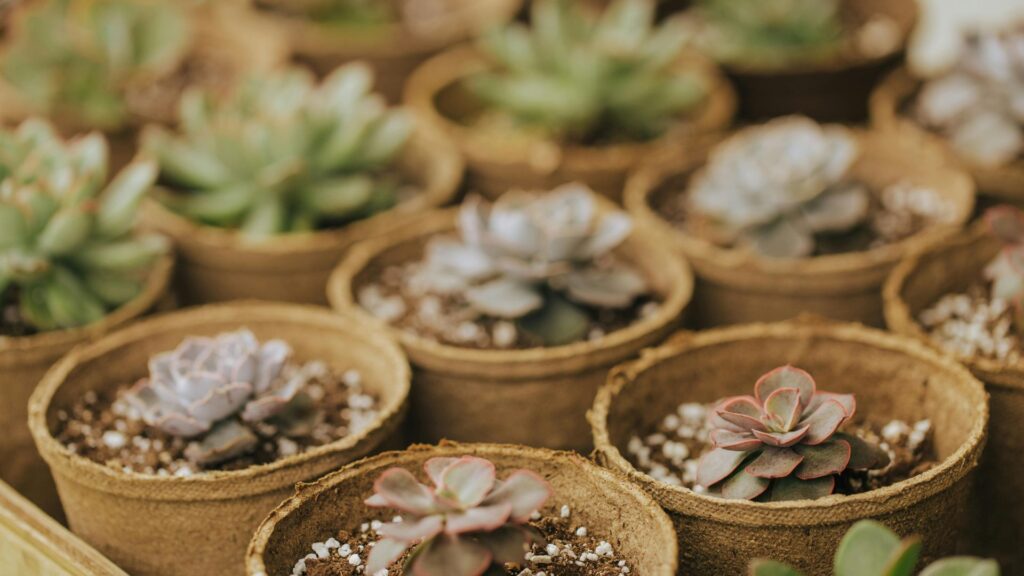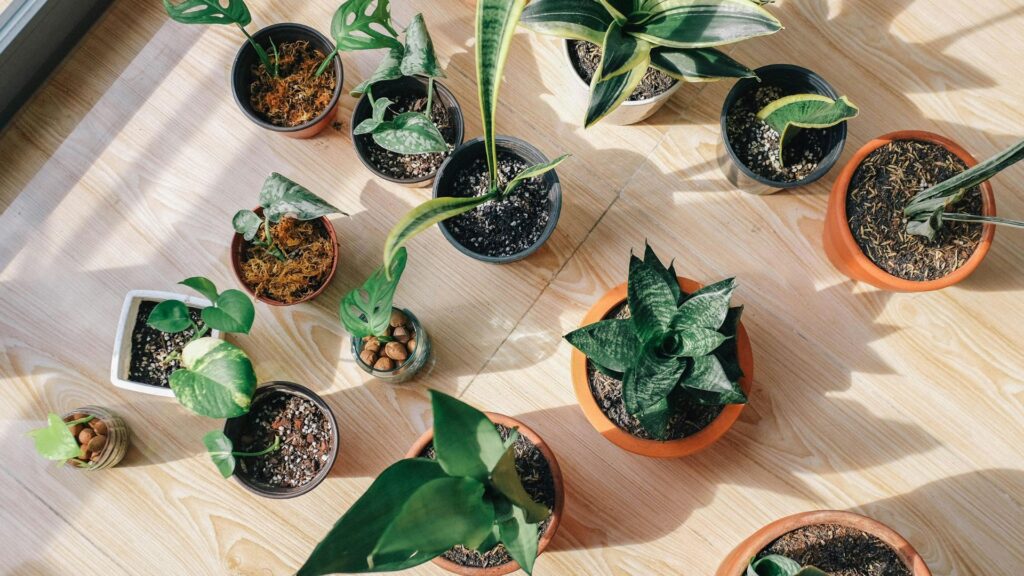In my opinion, starting an indoor garden can be a great way to utilize your spare time. House plants not only beautify your home but also help purify the air. If you’re new to this, choosing the right plants can be a bit difficult. So, here is a guide for choosing the best indoor house plants for beginners.
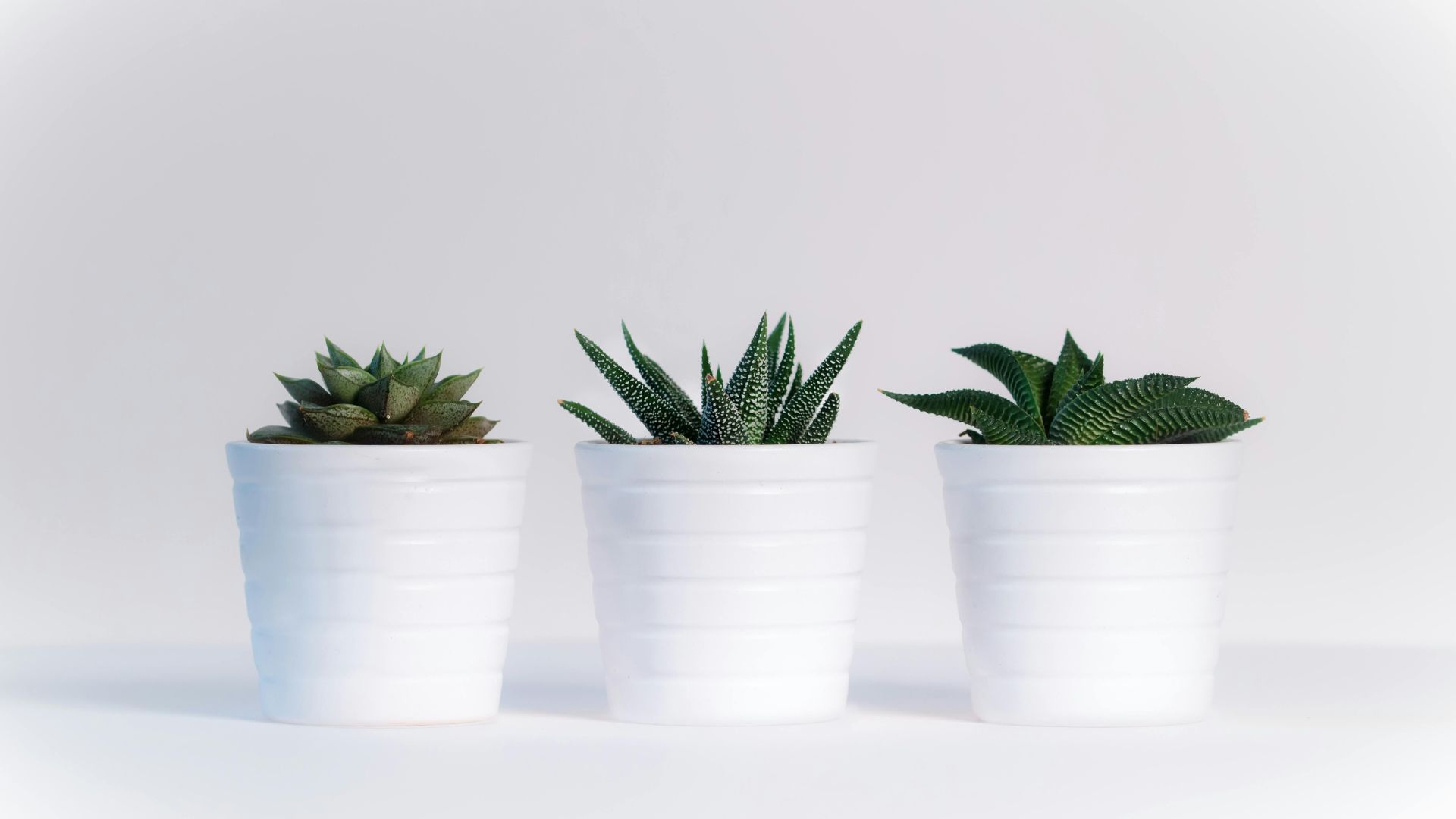
Best Indoor House Plants For Beginners
Here, I have given you 20 options, but to make a good garden you should have about 3 to 4 plants.
1. Spider Plant (Chlorophytum comosum)
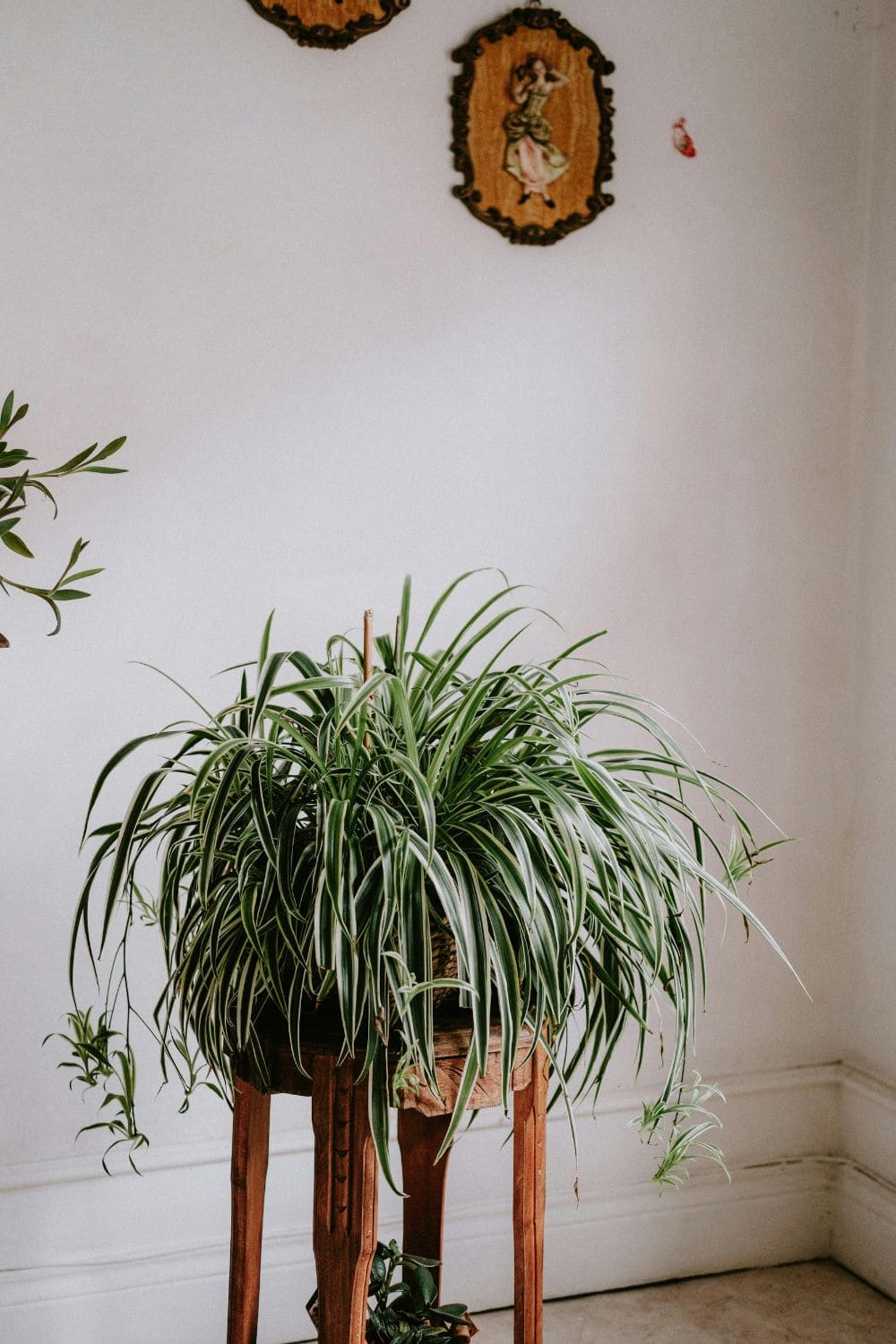
Spider plants are ideal for beginners. They are hardy and adapt to different environments. They prefer well-draining soil. Make sure to water them when the top inch of soil feels dry.
Their long and arching leaves with green and white or yellow stripes make them pretty attractive. Spider plants bloom in bright, indirect light.
- 🌟 Ease of Use: 5
- ☀️ Light Requirements: 4
- 🐛 Pests & Diseases: 4
- Overall Score: 4.3
2. Snake Plant (Sansevieria trifasciata)
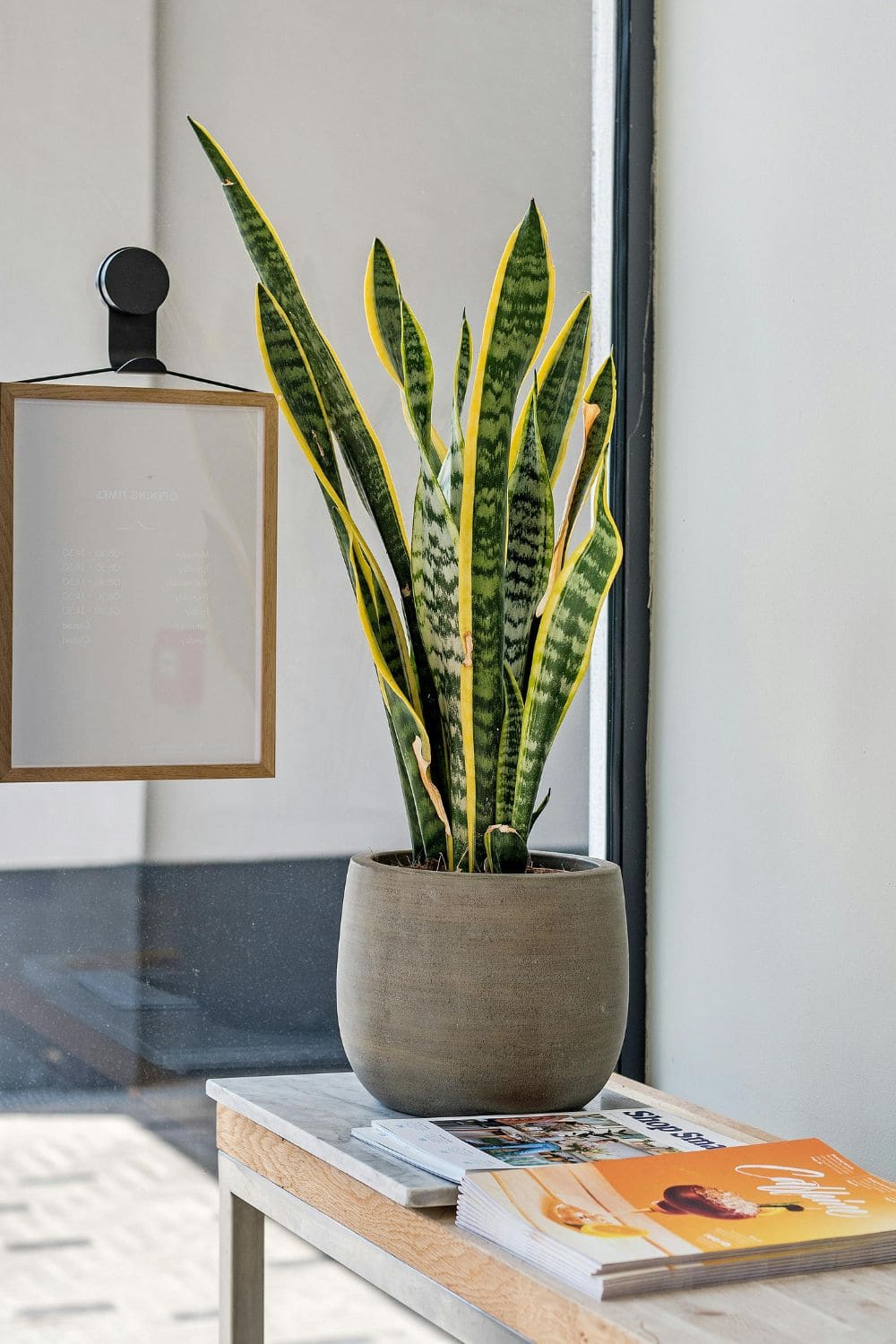
Snake plants have upright, sword-like leaves and are also known as “Sansevieria Trifasciata”. These plants are perfect for low light conditions.
They are drought-tolerant, so infrequent watering is optimal. Allow the soil to dry completely between waterings. They are perfect for busy beginners.
- 🌟 Ease of Use: 5
- ☀️ Light Requirements: 5
- 🐛 Pests & Diseases: 5
- Overall Score: 5
Amazon Product Recommendation
If you're planning to do indoor gardening then you must a nice concrete pot, so here is one for you.
Disclaimer: Commissions are earned if you make a purchase through these links at no extra cost to you.
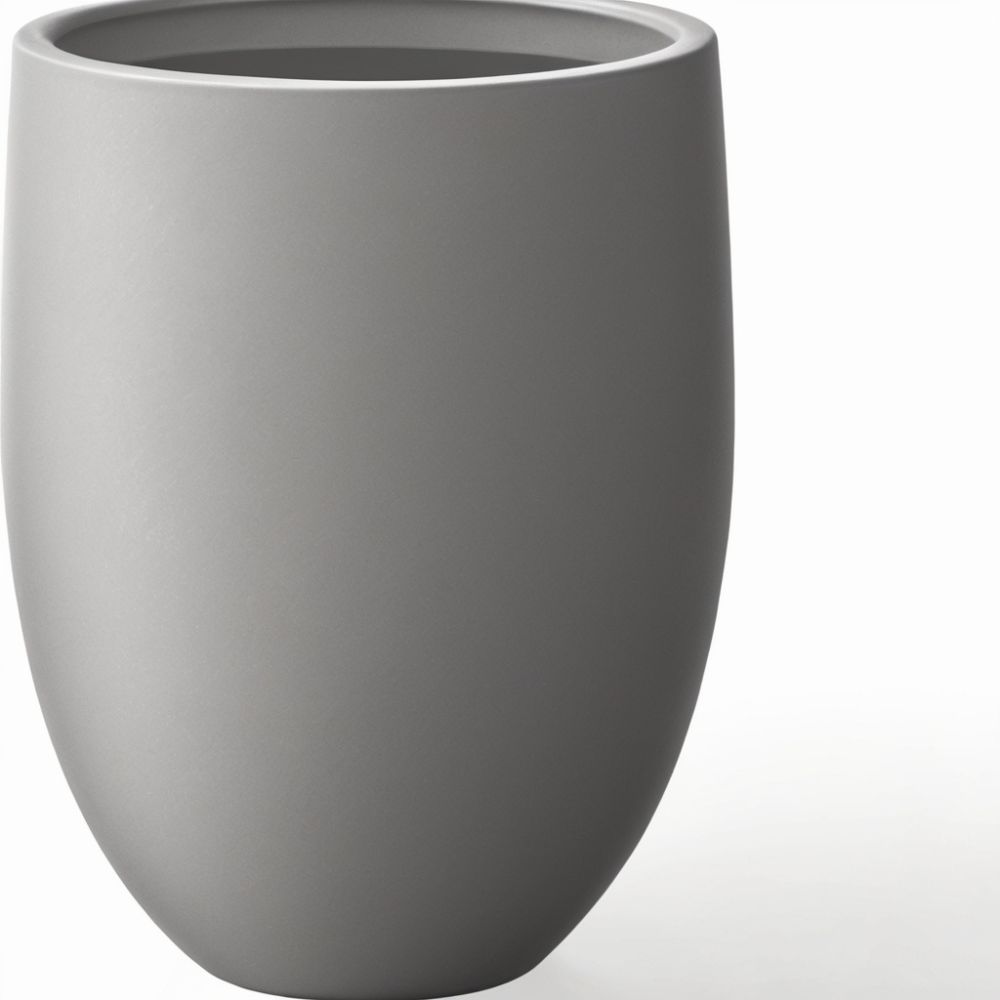
3. Pothos (Epipremnum aureum)
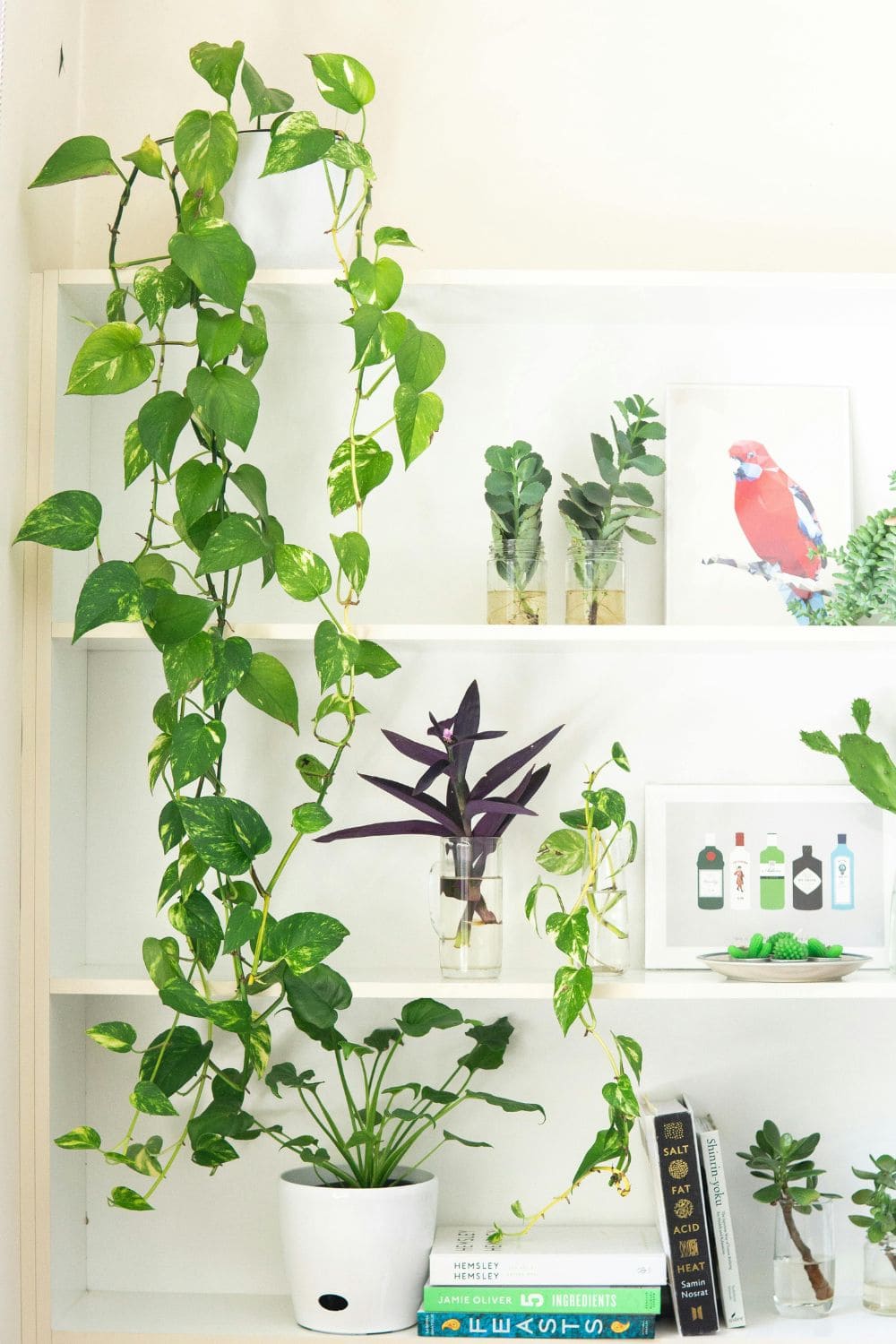
Pothos is also popular choice for beginners, also known as money plant. They have heart shaped leaves with the color green and yellow. It grows well in indirect light.
Pothos prefers to dry out between waterings. They are easy to propagate. Just cut a stem and place it in water until roots develop.
- 🌟 Ease of Use: 5
- ☀️ Light Requirements: 5
- 🐛 Pests & Diseases: 4
- Overall Score: 4.7
4. Peace Lily (Spathiphyllum)
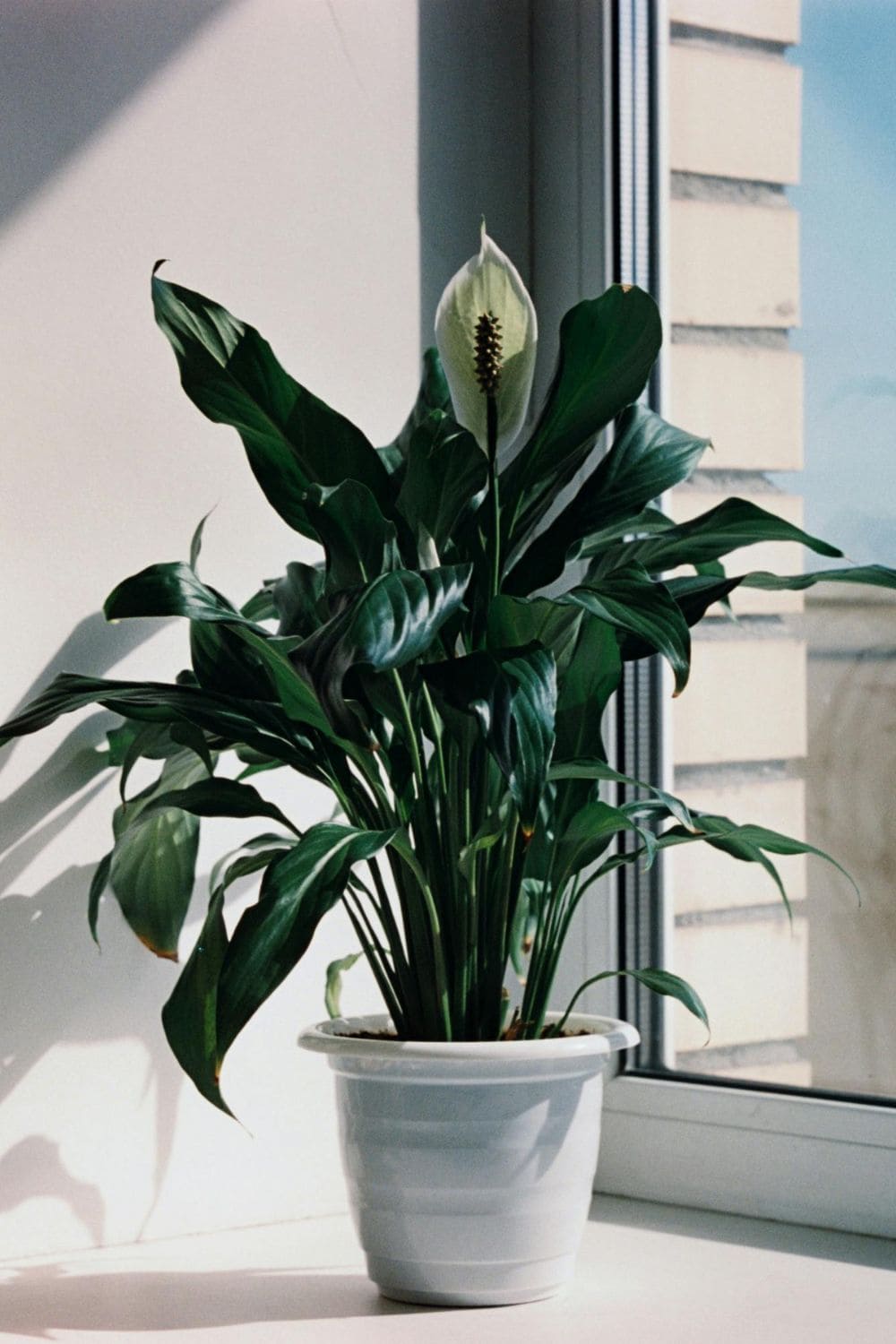
Peace lilies are not only beautiful but also low-maintenance. They have white flowers that contrast with their dark green leaves.
These plants prefer low to medium light. Water them once a week, and keep the soil moist. Peace lilies can droop if they get too dry, but they quickly recover after watering.
- 🌟 Ease of Use: 4
- ☀️ Light Requirements: 4
- 🐛 Pests & Diseases: 3
- Overall Score: 3.7
5. ZZ Plant (Zamioculcas zamiifolia)
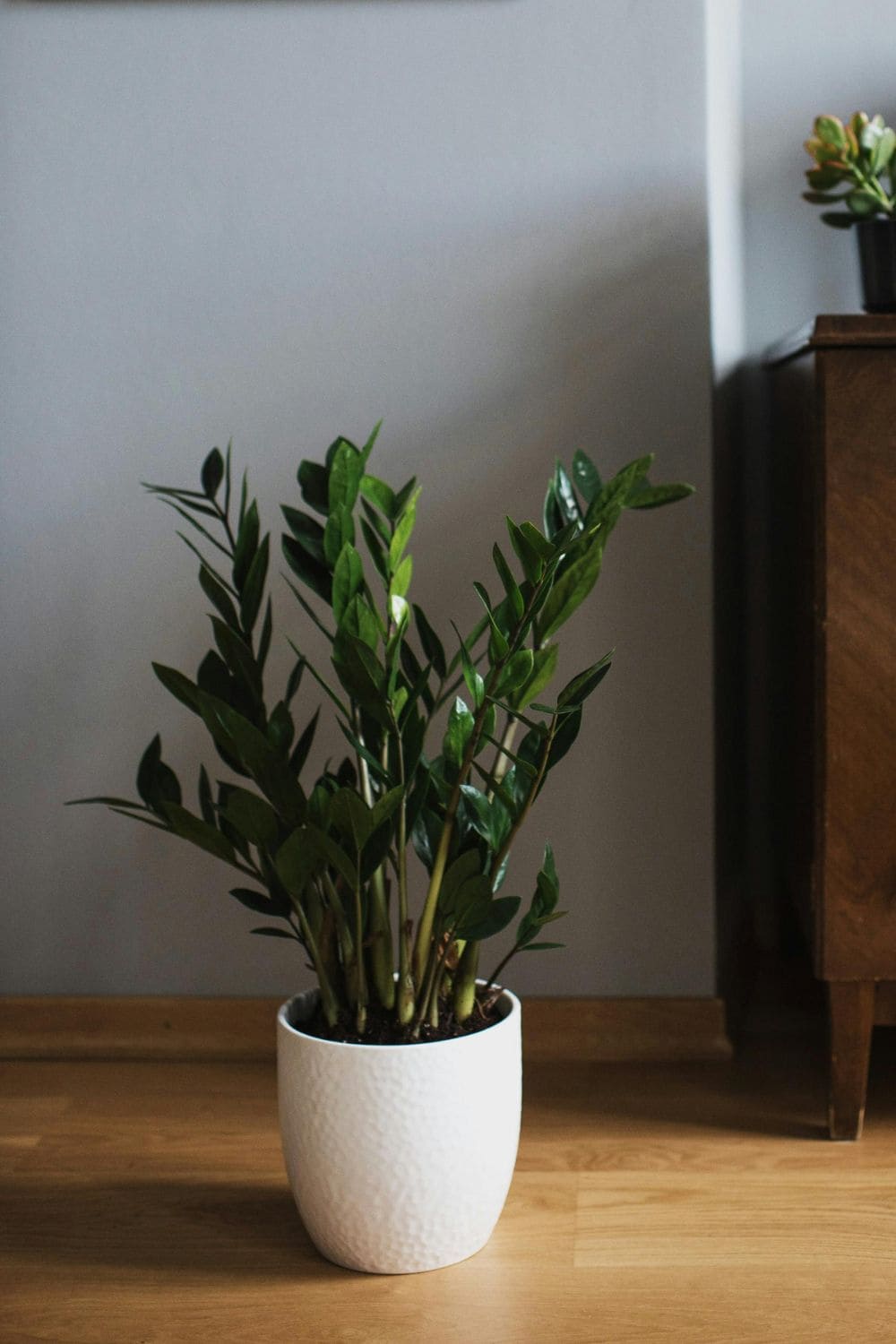
ZZ plants are known for their glossy, thick leaves. They can survive in low light and need little water. Let the soil dry out completely before watering again.
They are resistant to pests and diseases. In my opinion, they are a great option if you have a busy lifestyle.
- 🌟 Ease of Use: 5
- ☀️ Light Requirements: 5
- 🐛 Pests & Diseases: 5
- Overall Score: 5
6. Aloe Vera
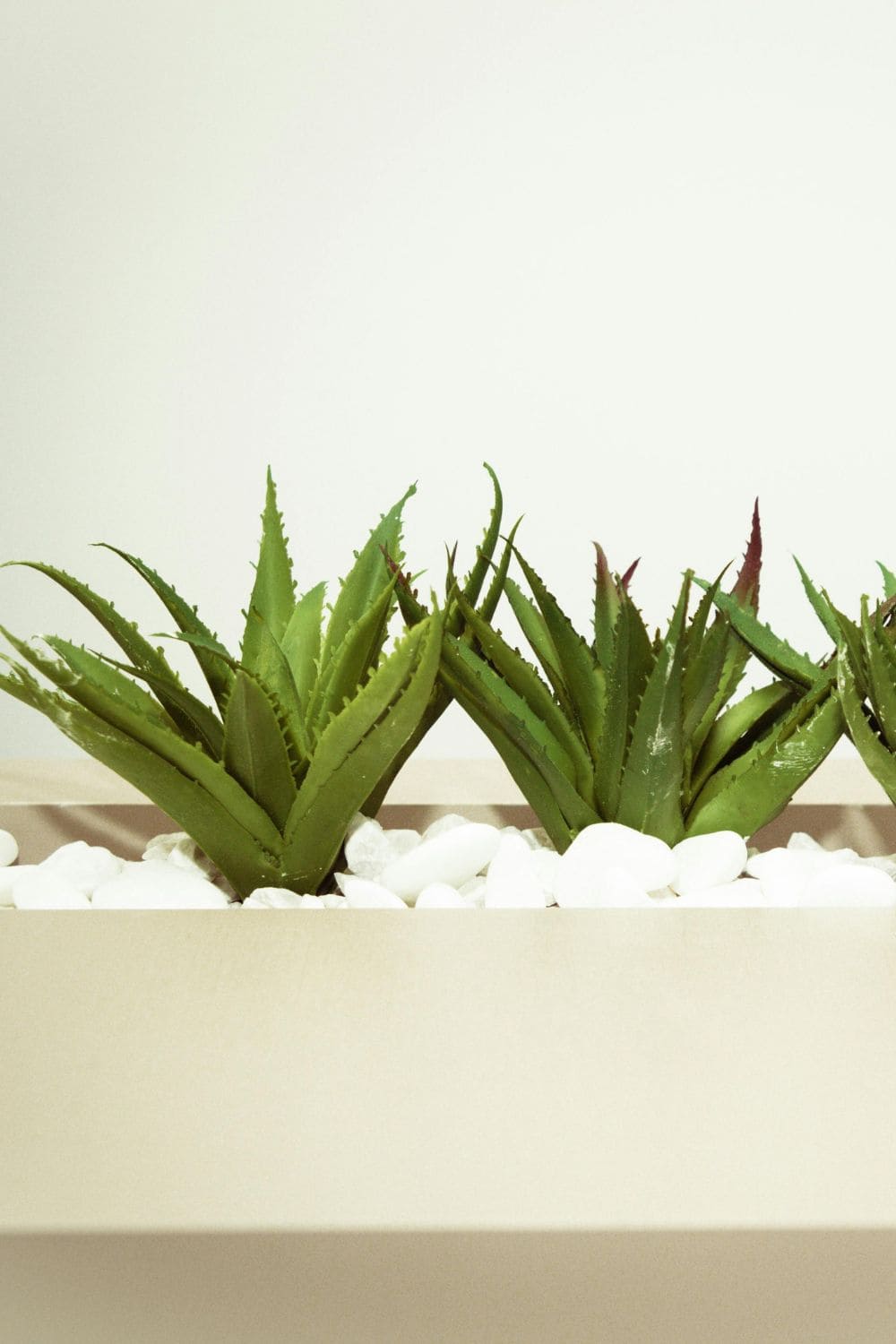
Aloe Vera has medicinal properties, it’s also good for your skin that’s why you find it in skin care products.
It has thick, fleshy leaves filled with gel. Aloe Vera prefers bright, indirect light. Watering once every week is usually sufficient.
Overwatering can cause root rot. Aloe Vera is also useful for treating minor burns and cuts.
- 🌟 Ease of Use: 4
- ☀️ Light Requirements: 4
- 🐛 Pests & Diseases: 5
- Overall Score: 4.3
7. Jade Plant (Crassula ovata)
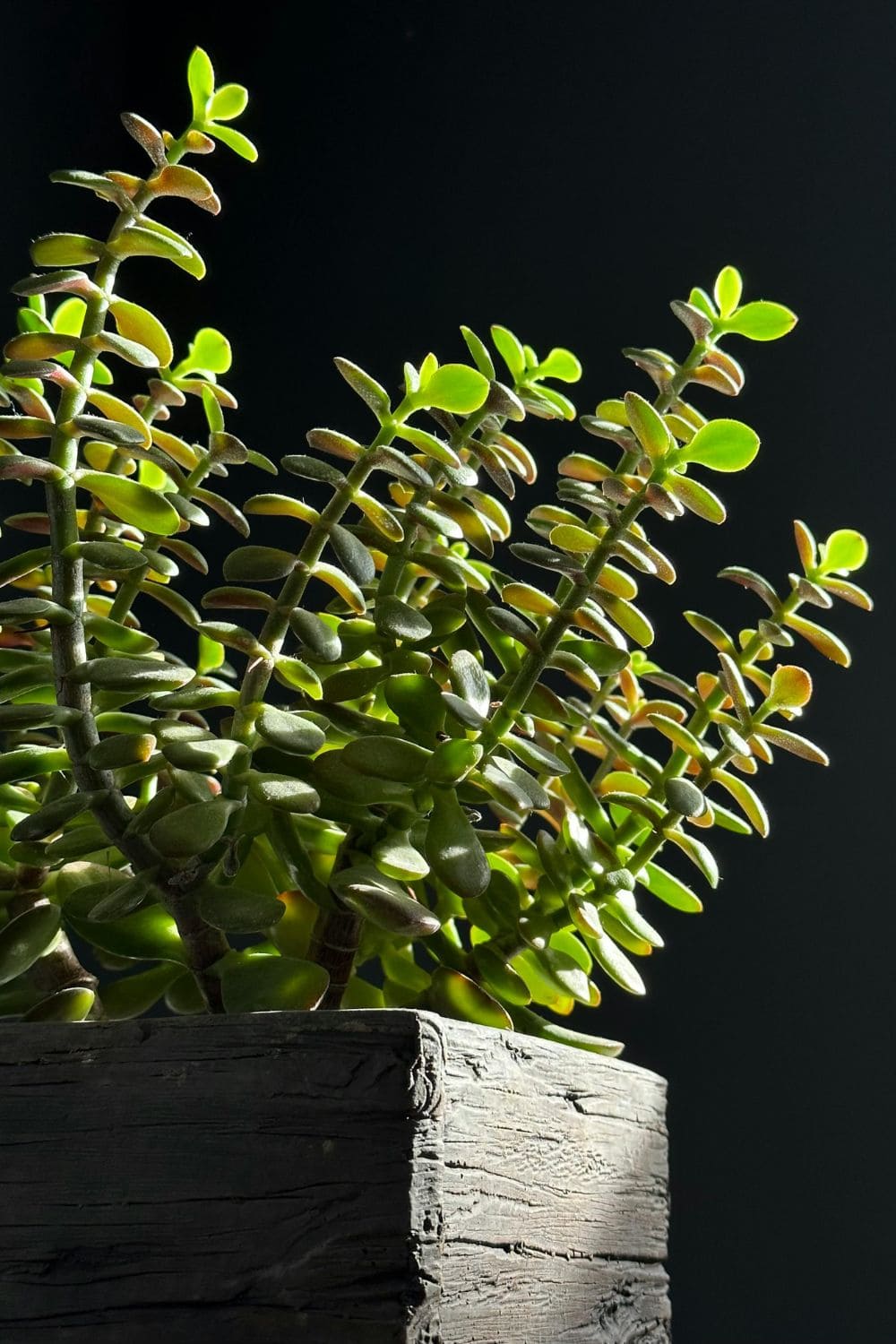
Jade plants have thick, glossy leaves. They are slow-growing and can live for many years and prefer bright light.
Water them infrequently, allowing the soil to dry out between waterings. They are easy to care for and can be a great addition to your indoor garden.
- 🌟 Ease of Use: 4
- ☀️ Light Requirements: 4
- 🐛 Pests & Diseases: 4
- Overall Score: 4
8. Rubber Plant (Ficus elastica)
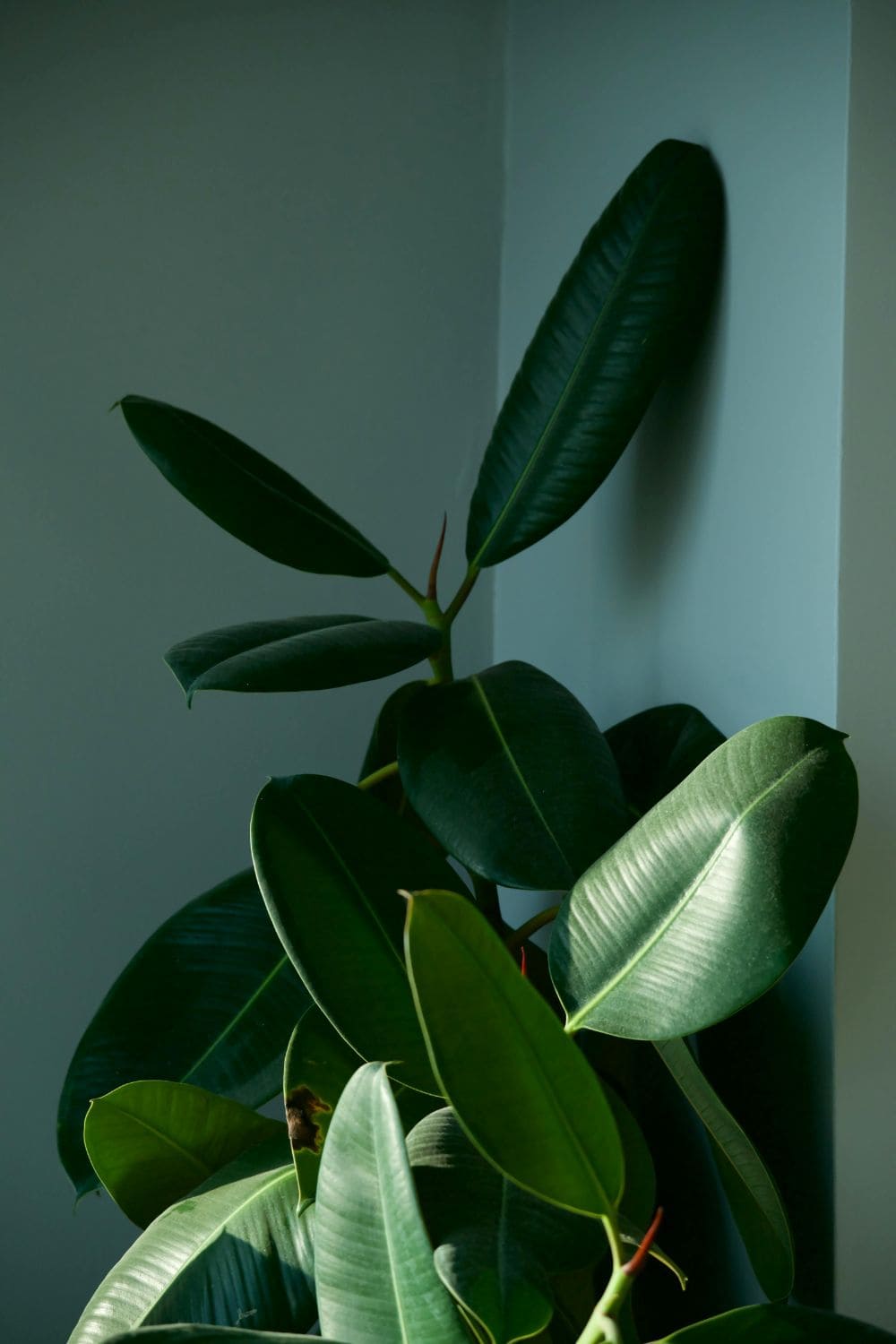
Rubber plants have large, glossy leaves. They have air purifying qualities and can adapt to lower light conditions.
Water them when the top inch of soil is dry. Rubber plants can grow quite tall, but you can prune them to maintain their size.
- 🌟 Ease of Use: 4
- ☀️ Light Requirements: 4
- 🐛 Pests & Diseases: 3
- Overall Score: 3.7
9. Philodendron
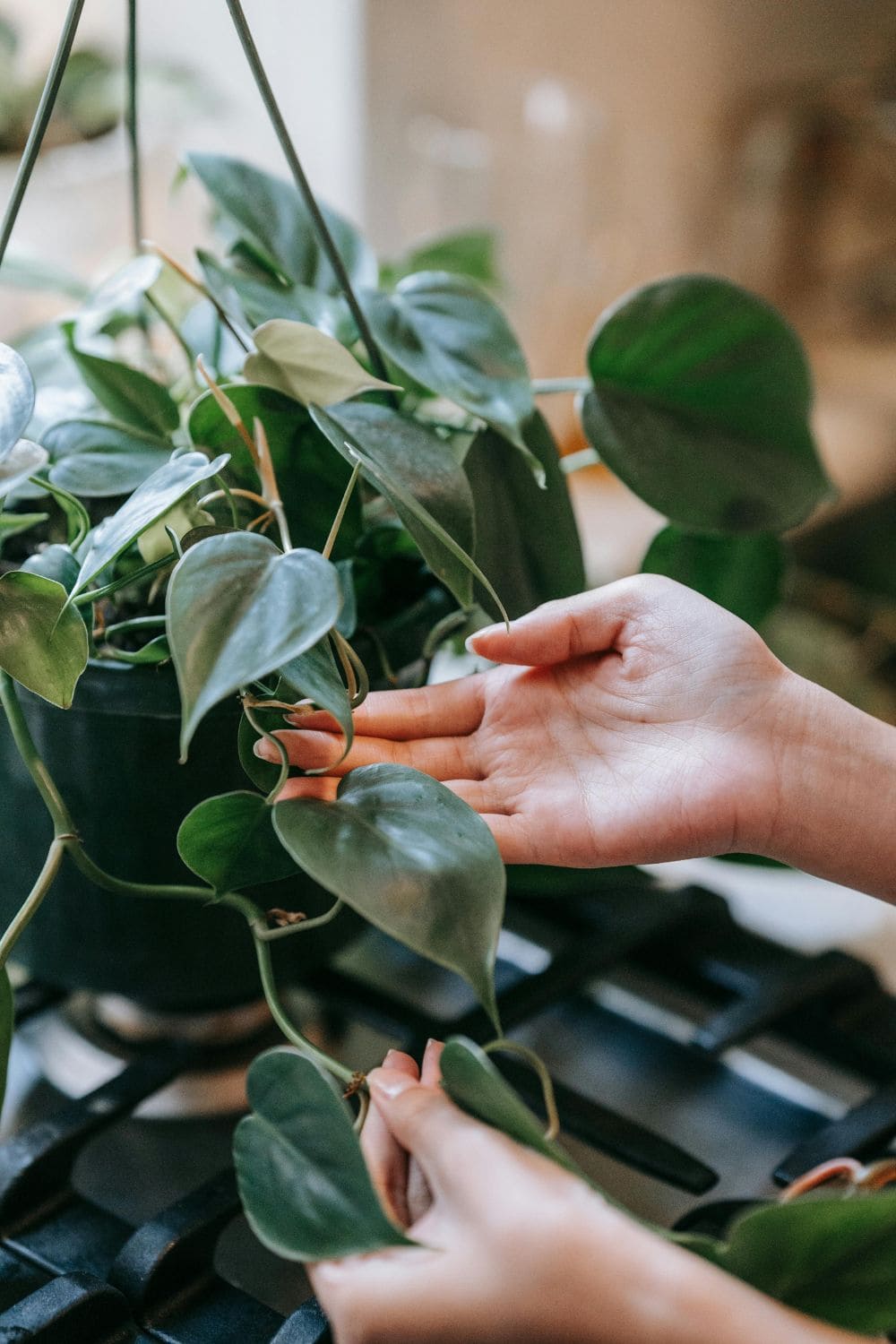
Philodendrons are pretty easy to care for. They come in many varieties, with different leaf shapes and colors.
They prefer bright, indirect light but can tolerate low light. Water them when the top inch of soil feels dry. They are favorite among plant enthusiasts.
- 🌟 Ease of Use: 5
- ☀️ Light Requirements: 5
- 🐛 Pests & Diseases: 4
- Overall Score: 4.7
10. Boston Fern (Nephrolepis exaltata)
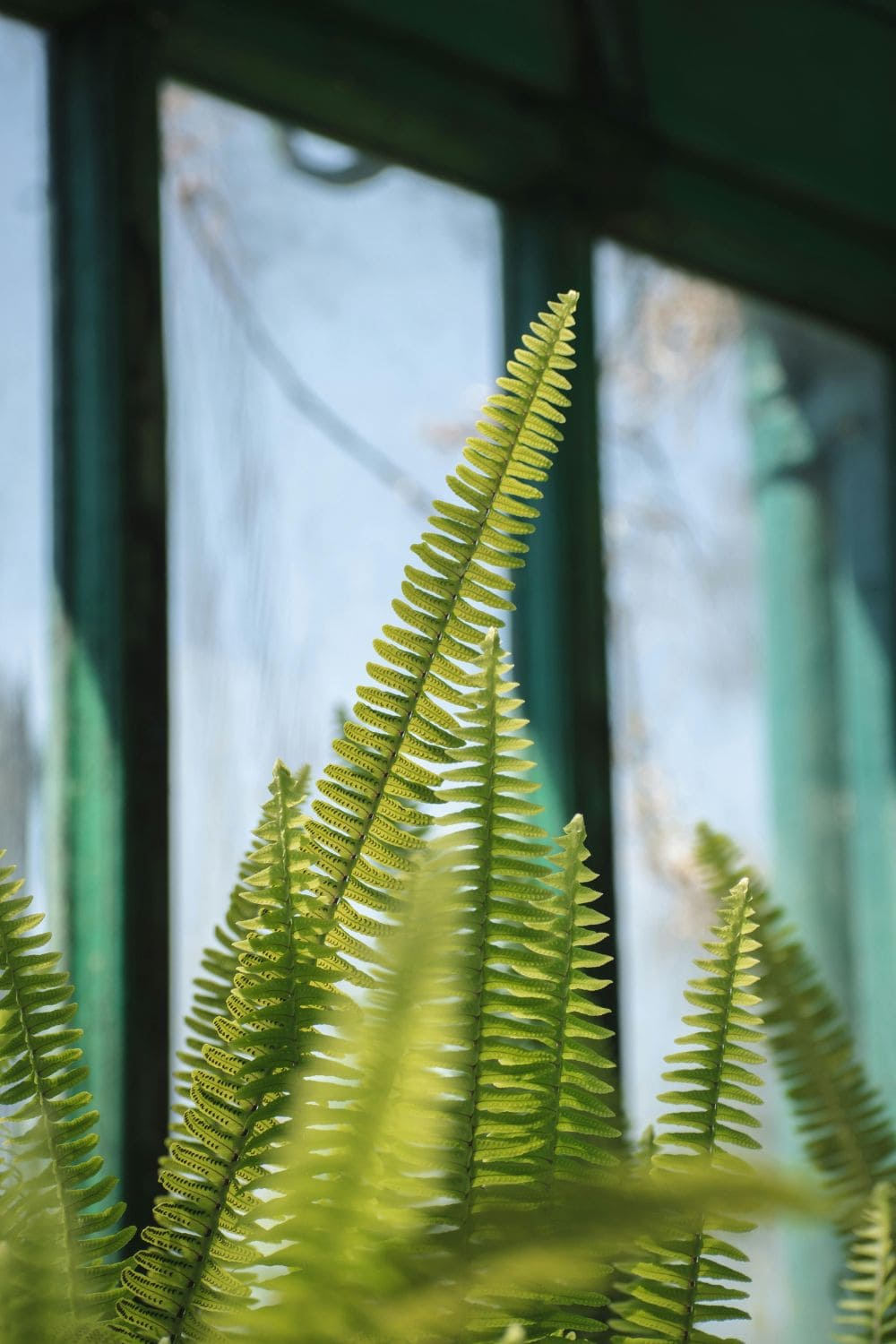
Boston ferns are nice and feathery. They bloom in high humidity and indirect light. You should keep their soil consistently moist, but not soggy.
They thrive in bathrooms or kitchens where humidity is higher. Regular misting can also help keep them happy.
- 🌟 Ease of Use: 3
- ☀️ Light Requirements: 3
- 🐛 Pests & Diseases: 3
- Overall Score: 3
11. Chinese Evergreen (Aglaonema)
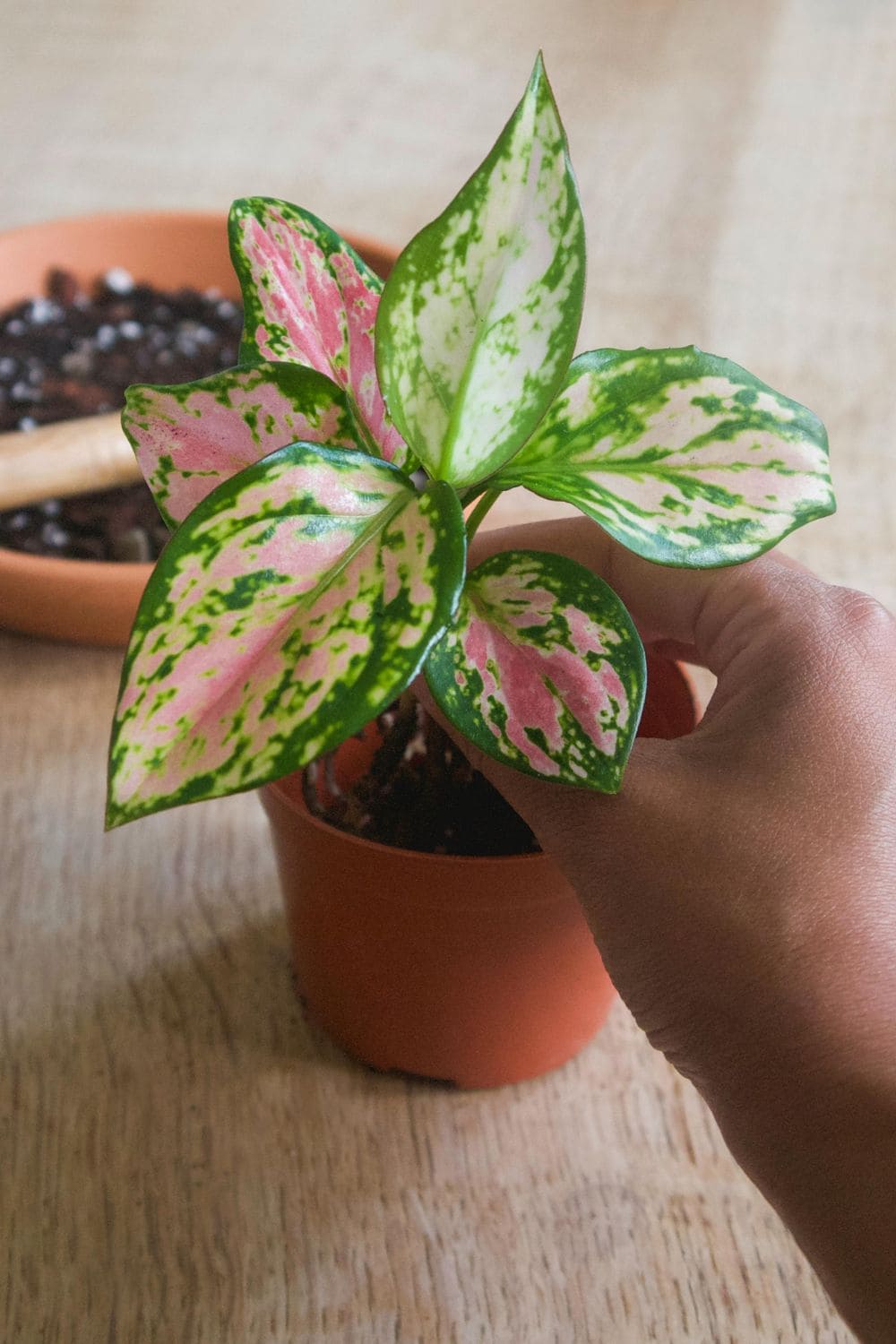
Chinese evergreens are known for their greenery. They come in shades of green, red, and silver. These plants are very tolerant of low light.
Water them when the top inch of soil is dry. They are also quite resistant to pests.
- 🌟 Ease of Use: 5
- ☀️ Light Requirements: 5
- 🐛 Pests & Diseases: 4
- Overall Score: 4.7
12. Dracaena
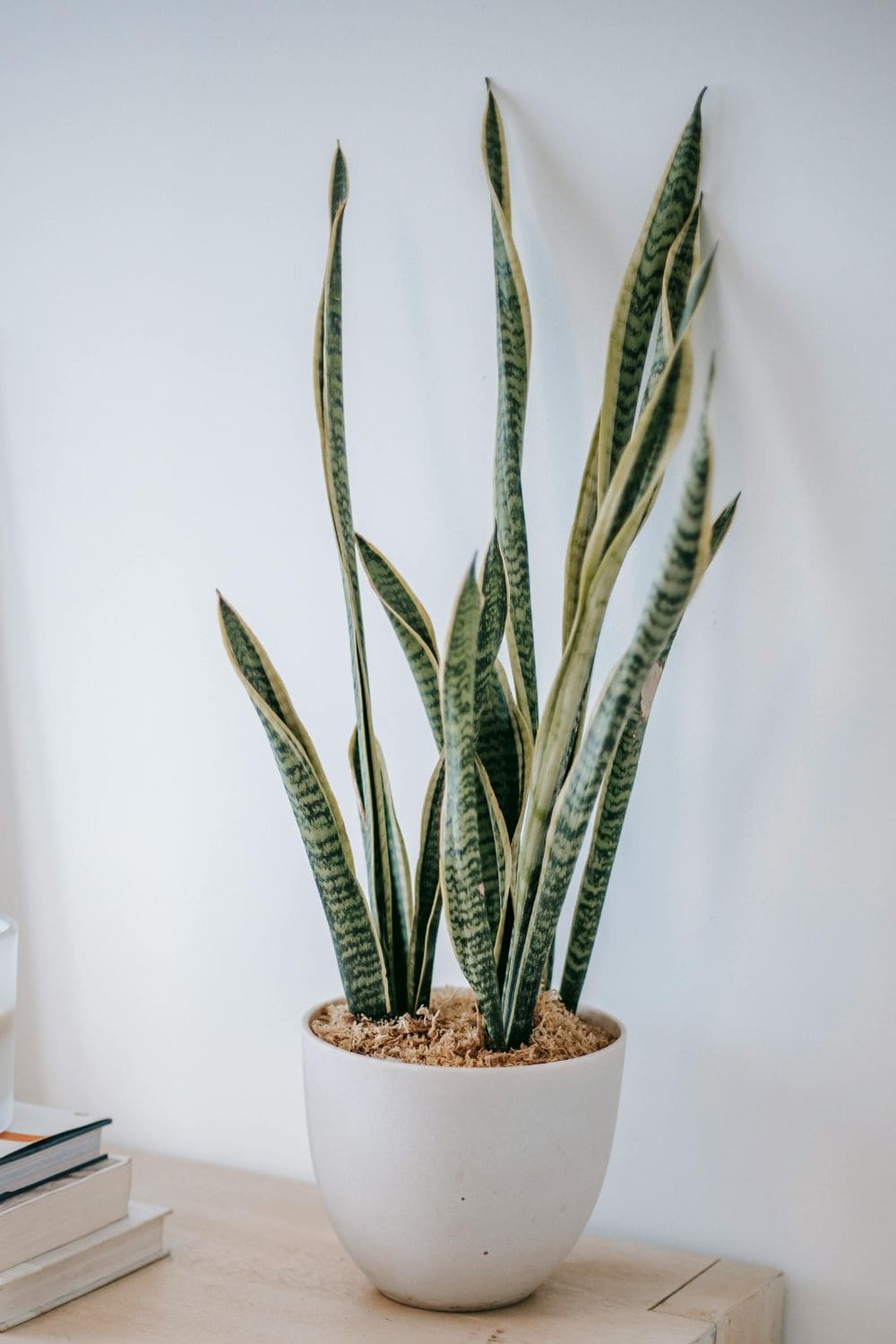
Dracaenas look beautiful with their long, slender leaves. They come in various varieties, including the popular “Dragon Tree.”
Dracaenas prefer bright, indirect light. Water them when the soil feels dry to the touch. These plants are also known for their air-purifying properties, they can grow quite tall.
- 🌟 Ease of Use: 4
- ☀️ Light Requirements: 4
- 🐛 Pests & Diseases: 4
- Overall Score: 4
13. Fiddle Leaf Fig (Ficus lyrata)
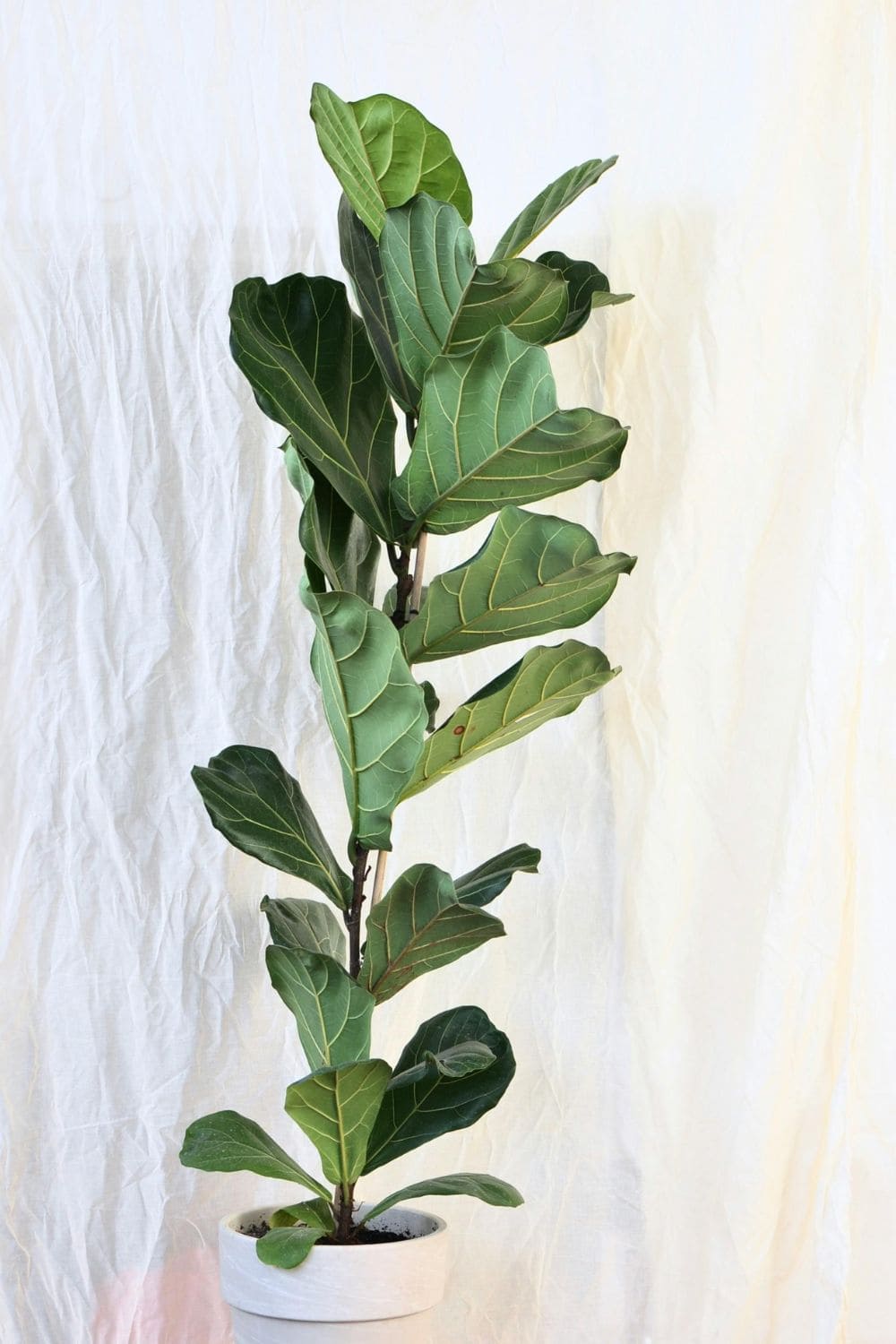
Fiddle leaf figs have large, violin-shaped leaves. They prefer bright, indirect light and need a bit more attention.
Water them when the top inch of soil is dry. They can be choosy about their environment, but once they adjust, they are a stunning addition to any home.
- 🌟 Ease of Use: 3
- ☀️ Light Requirements: 3
- 🐛 Pests & Diseases: 3
- Overall Score: 3
14. Cast Iron Plant (Aspidistra elatior)
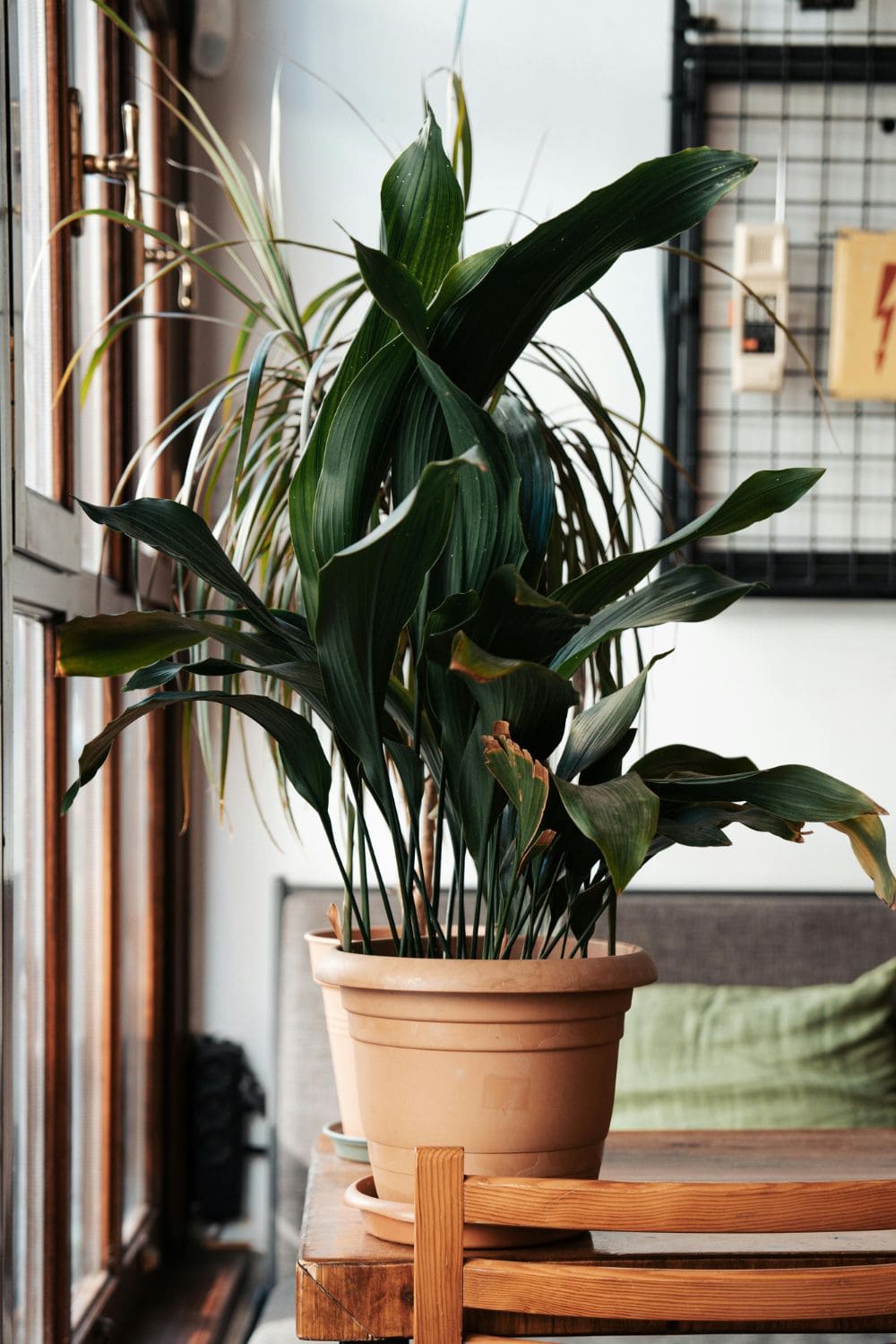
Cast iron plants are incredibly tough. They bloom in low light and need minimal care, their leaves are sturdy and can withstand neglect.
Water them when the soil feels dry, cast iron plants are also resistant to pests making them perfect for those who want a low-maintenance yet attractive plant.
- 🌟 Ease of Use: 5
- ☀️ Light Requirements: 5
- 🐛 Pests & Diseases: 5
- Overall Score: 5
15. English Ivy (Hedera helix)
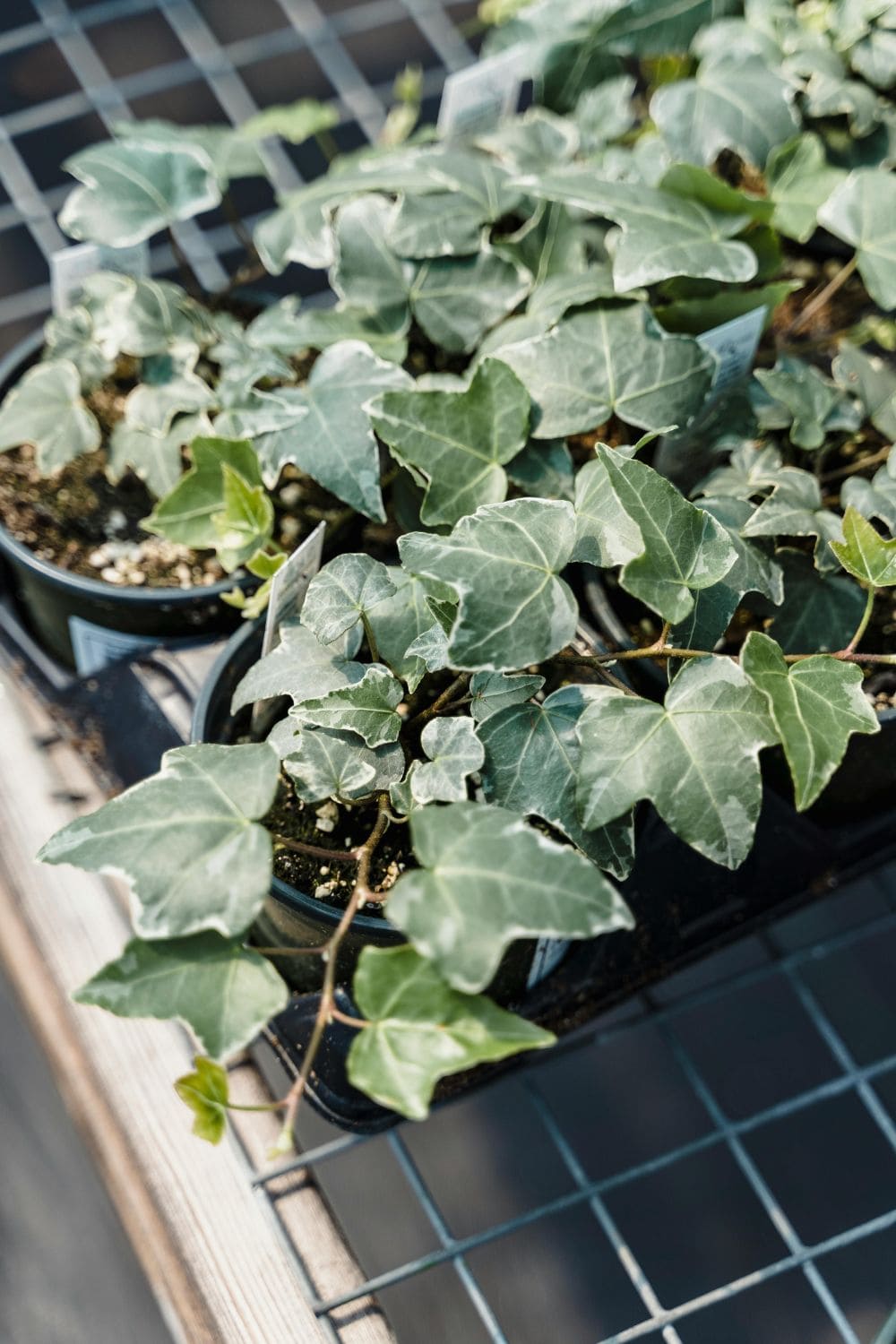
English ivy is a classic choice for indoor gardening. It has hanging vines with glossy leaves. Ivy prefers bright, indirect light but it can tolerate low light.
Keep the soil slightly moist. English ivy can also be effective at improving air quality. It can be grown in hanging baskets or allowed to trail from shelves.
- 🌟 Ease of Use: 4
- ☀️ Light Requirements: 4
- 🐛 Pests & Diseases: 3
- Overall Score: 3.7
16. Lucky Bamboo (Dracaena sanderiana)
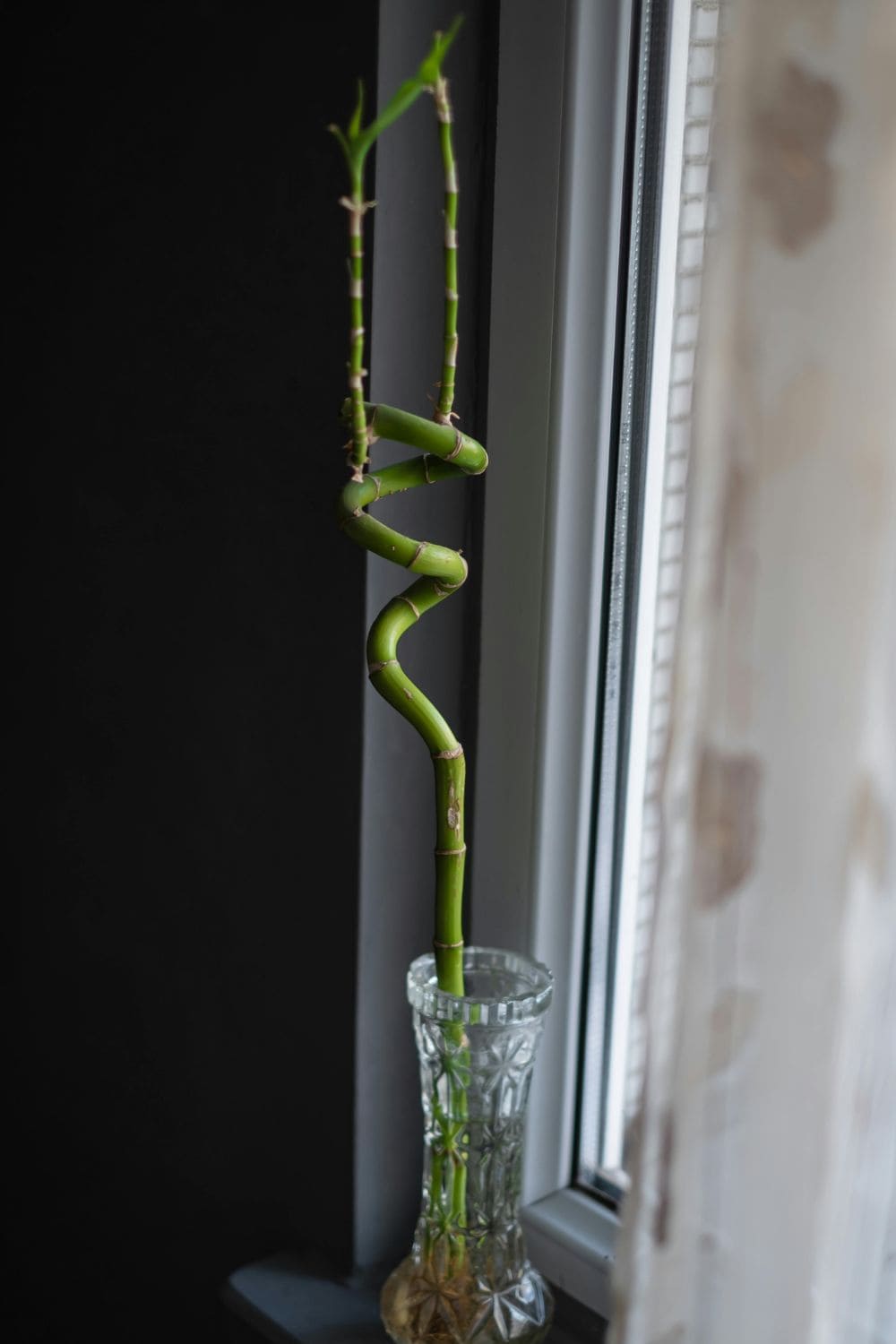
Lucky bamboo is not a true bamboo, but a member of the Dracaena family. It is easy to grow in water or soil.
Lucky bamboo prefers indirect light. Make sure to change the water every couple of weeks if grown in water. If planted in soil, keep it slightly moist. It is also believed to bring good luck and positive energy.
- 🌟 Ease of Use: 5
- ☀️ Light Requirements: 5
- 🐛 Pests & Diseases: 5
- Overall Score: 5
17. Calathea
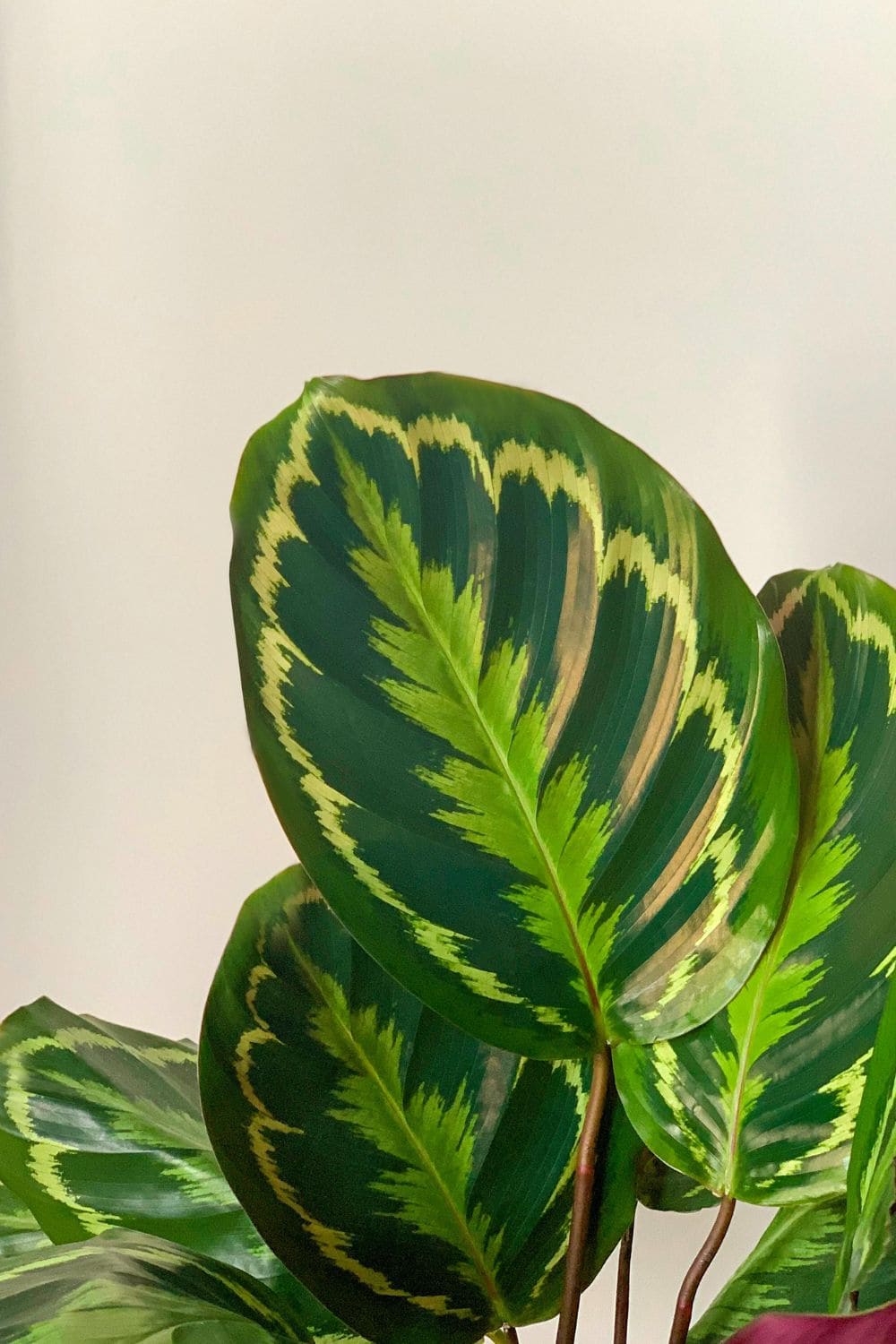
Calatheas have a stunning leaf patterns. They prefer low to medium light and high humidity.
Keep the soil consistently moist but not waterlogged, they are sensitive to fluoride in tap water, so use distilled or filtered water.
They can be a bit more demanding but are worth the effort for their striking appearance.
- 🌟 Ease of Use: 3
- ☀️ Light Requirements: 3
- 🐛 Pests & Diseases: 3
- Overall Score: 3
18. Parlor Palm (Chamaedorea elegans)
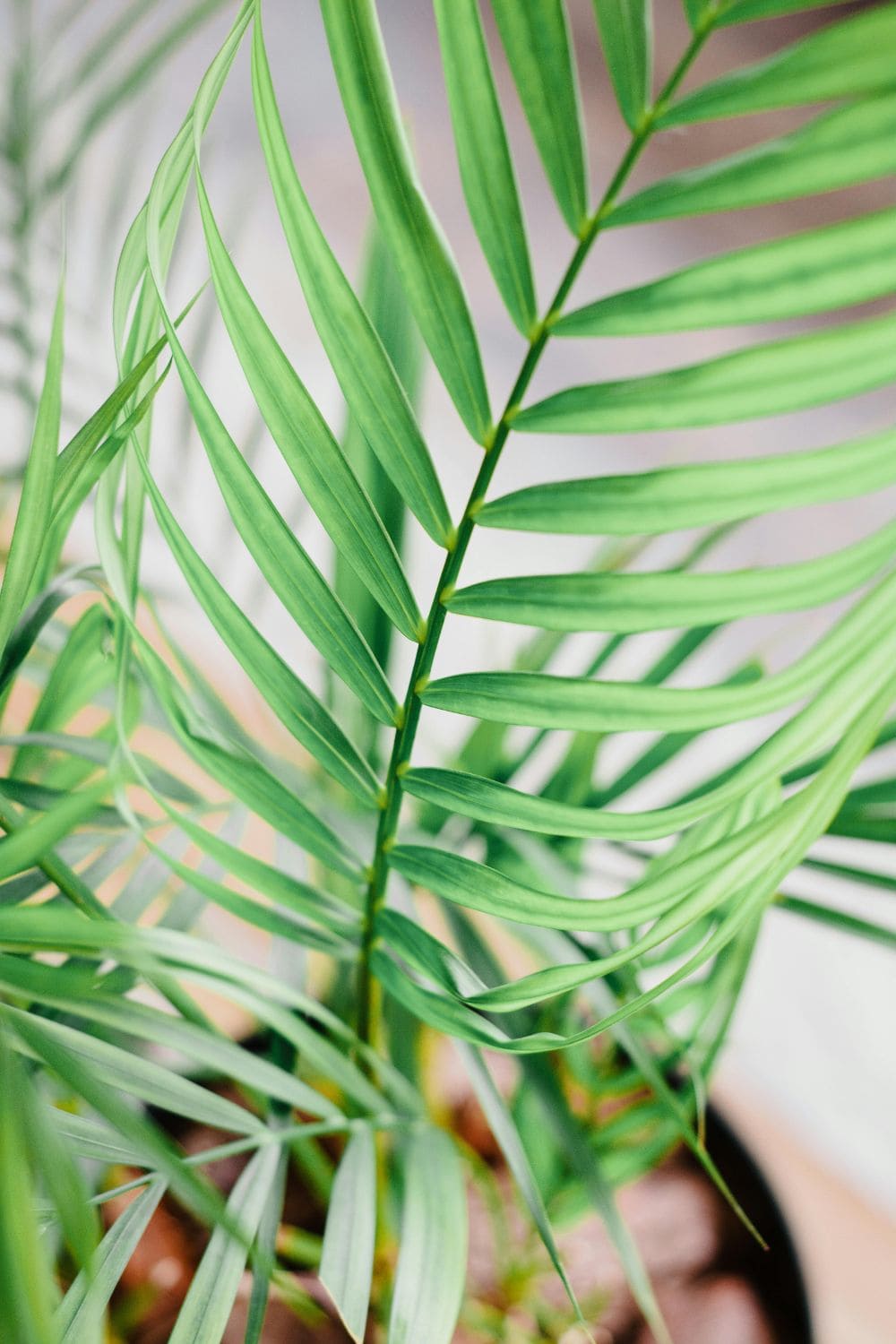
Parlor palms are elegant and easy to care for, they prefer low to moderate light and need evenly moist soil.
Water them when the top inch of soil is dry, Parlor palms can grow up to four feet tall indoors. They are also effective air purifiers.
- 🌟 Ease of Use: 4
- ☀️ Light Requirements: 4
- 🐛 Pests & Diseases: 4
- Overall Score: 4
19. Haworthia
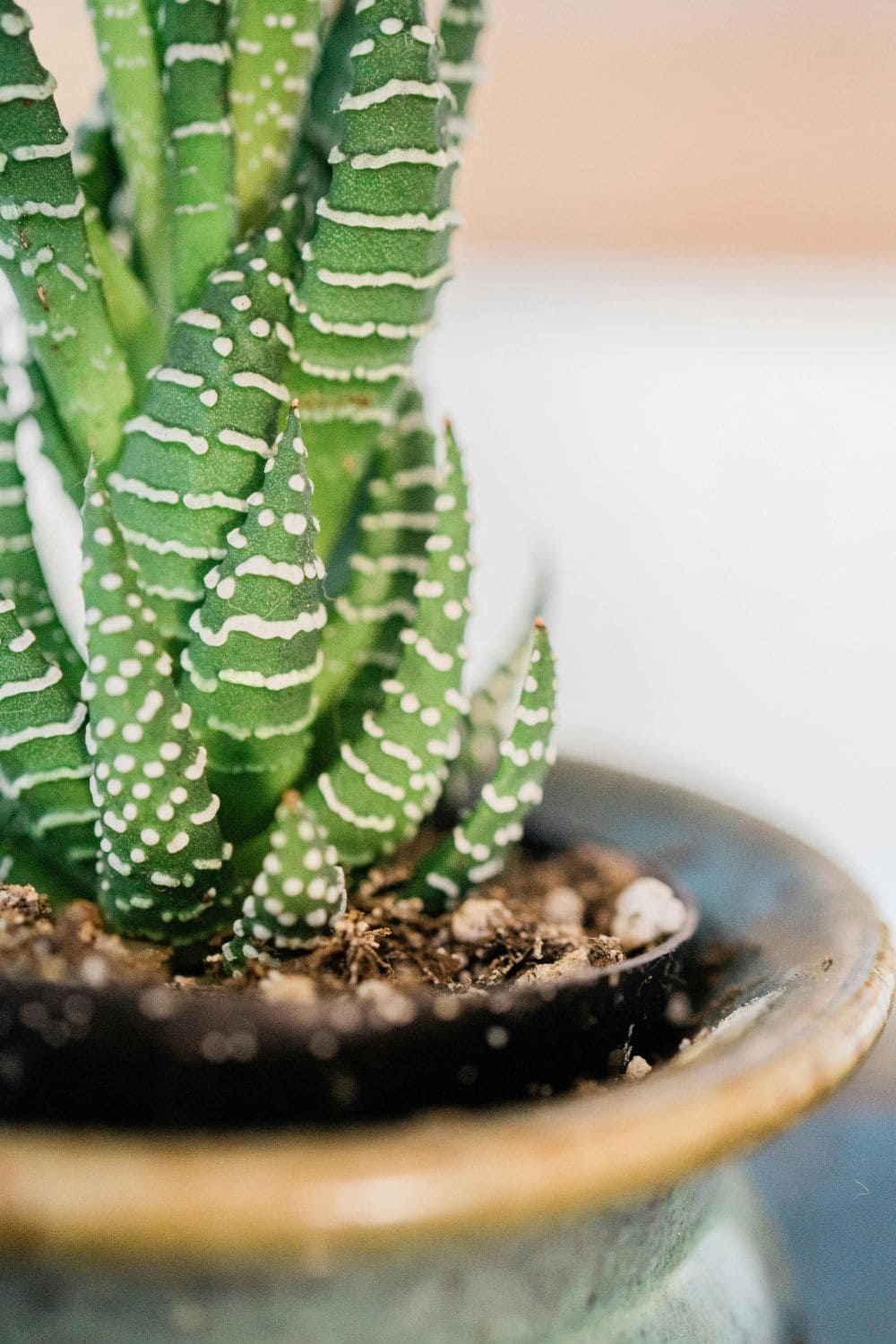
Haworthias have rosette-shaped leaves. They are perfect for desks or small spaces. Haworthias prefer bright, indirect light.
Water them sparingly, allowing the soil to dry out between waterings. They are quite low-maintenance and can thrive in neglect, in my opinion, they are ideal for beginners.
- 🌟 Ease of Use: 5
- ☀️ Light Requirements: 5
- 🐛 Pests & Diseases: 5
- Overall Score: 5
20. Fittonia (Nerve Plant)
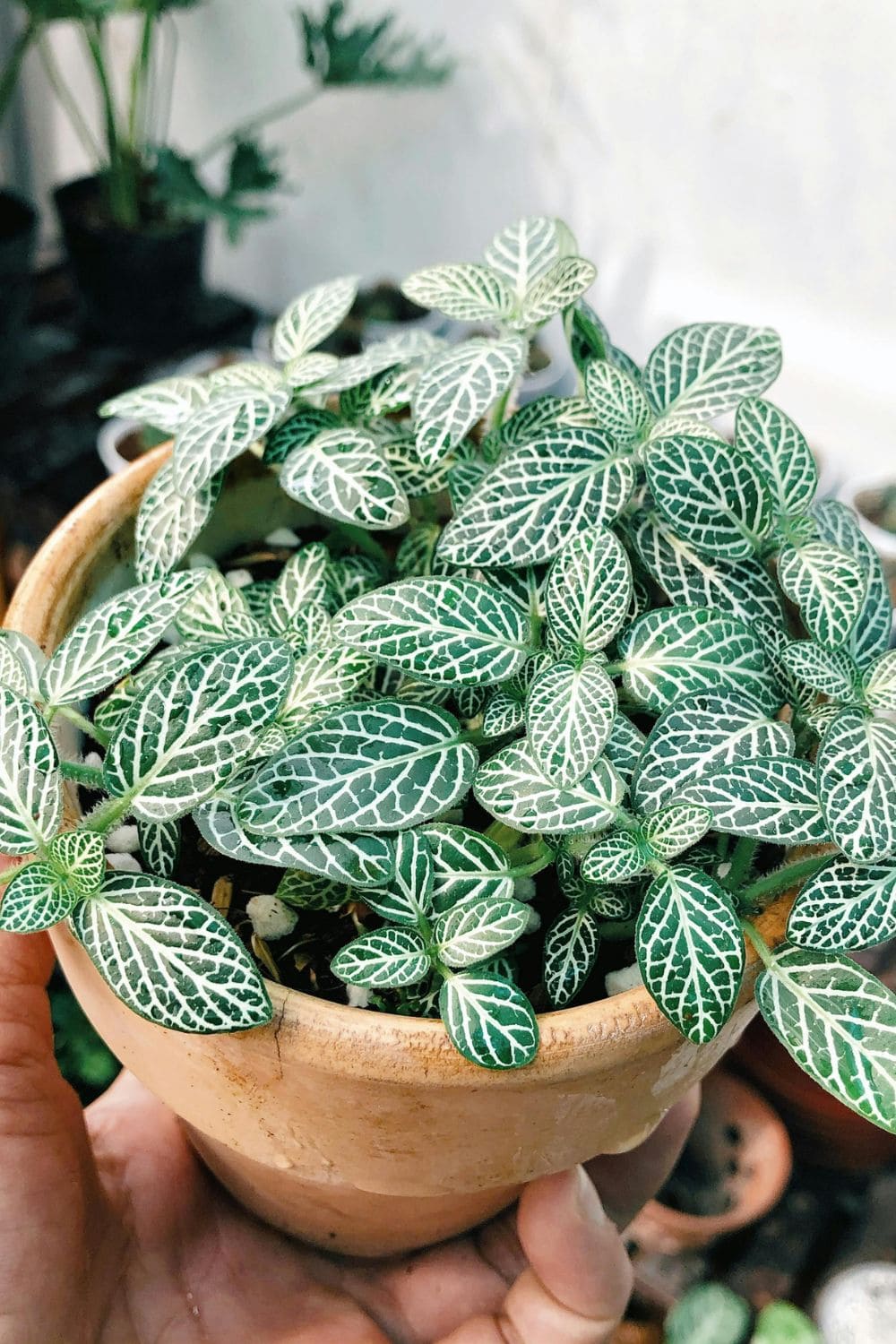
Fittonia, or nerve plant, is known for veined leaves. They prefer low to medium light and high humidity.
Keep the soil consistently moist. Fittonias can be a bit temperamental but are quite rewarding. They are perfect for terrariums or small pots.
- 🌟 Ease of Use: 3
- ☀️ Light Requirements: 4
- 🐛 Pests & Diseases: 3
- Overall Score: 3.3
Conclusion
In my opinion, starting your own indoor garden doesn’t have to be that difficult. With the right indoor plants, you can enjoy the benefits of greenery while being lazy like me!
The indoor house plants listed above are perfect for beginners, offering beauty, ease of care, and even air-purifying qualities.

